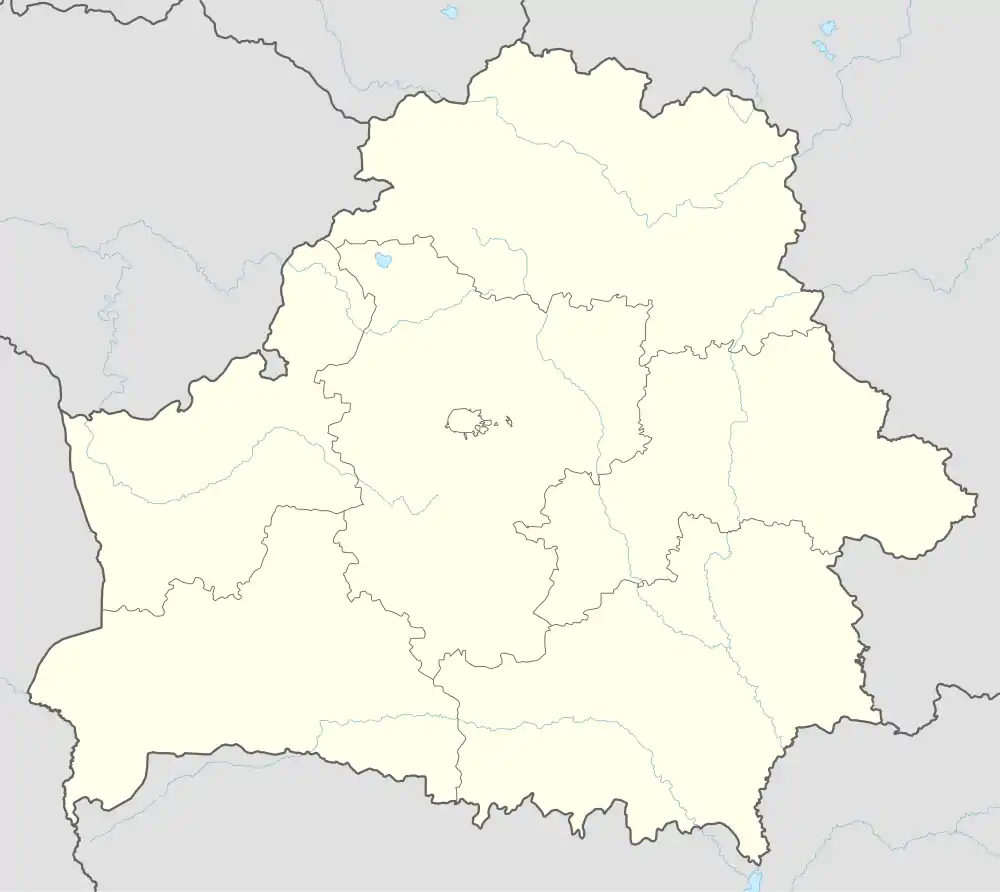Porazava
| |
|---|---|
 | |
 Flag  Coat of arms | |
 Porazava | |
| Coordinates: 52°56′N 24°22′E / 52.933°N 24.367°E | |
| Country | Belarus |
| Region | Grodno Region |
| District | Svislach District |
| Population (2023)[1] | |
| • Total | 694 |
| Time zone | UTC+3 (MSK) |
Porazava (Belarusian: Поразава; Russian: Порозово, romanized: Porozovo; Polish: Porozów; Yiddish: פּאָרוזעווע, romanized: Porozeve; Lithuanian: Porozovas) is an urban-type settlement in Svislach District, Grodno Region, Belarus.[2][1] It is located near the town of Svislach.[3] As of 2023, it has a population of 694.[1]
History
The town had a thriving Jewish community and synagagogue prior to World War II. Among those born in the town was the "mother of Yiddish theatre" Ester Rachel Kamińska.
During World War II, Porazava was occupied by Nazi Germany from June 1941 until 15 July 1944 and administered as a part of Bezirk Bialystok.
References
- 1 2 3 "Численность населения на 1 января 2023 г. и среднегодовая численность населения за 2022 год по Республике Беларусь в разрезе областей, районов, городов, поселков городского типа". belsat.gov.by. Archived from the original on 17 April 2023. Retrieved 5 October 2023.
- ↑ Gaponenko, Irina Olegovna (2004). Назвы населеных пунктаў Рэспублікі Беларусь: Гродзенская вобласць. Minsk: Тэхналогія. p. 308. ISBN 985-458-098-9.
- ↑ Vitaut Kipel, Zora Kipel Byelorussian statehood: reader and bibliography 1988 - Page 320 "He was born in the town of Porazava, near the city of Vatikavysk on December 16. 1888. His parents were poor urbanites who owned some land on which they worked. Hadleuski went to local schools in Porazava and in the town of Svislac."
External links
Wikimedia Commons has media related to Porazava.
This article is issued from Wikipedia. The text is licensed under Creative Commons - Attribution - Sharealike. Additional terms may apply for the media files.